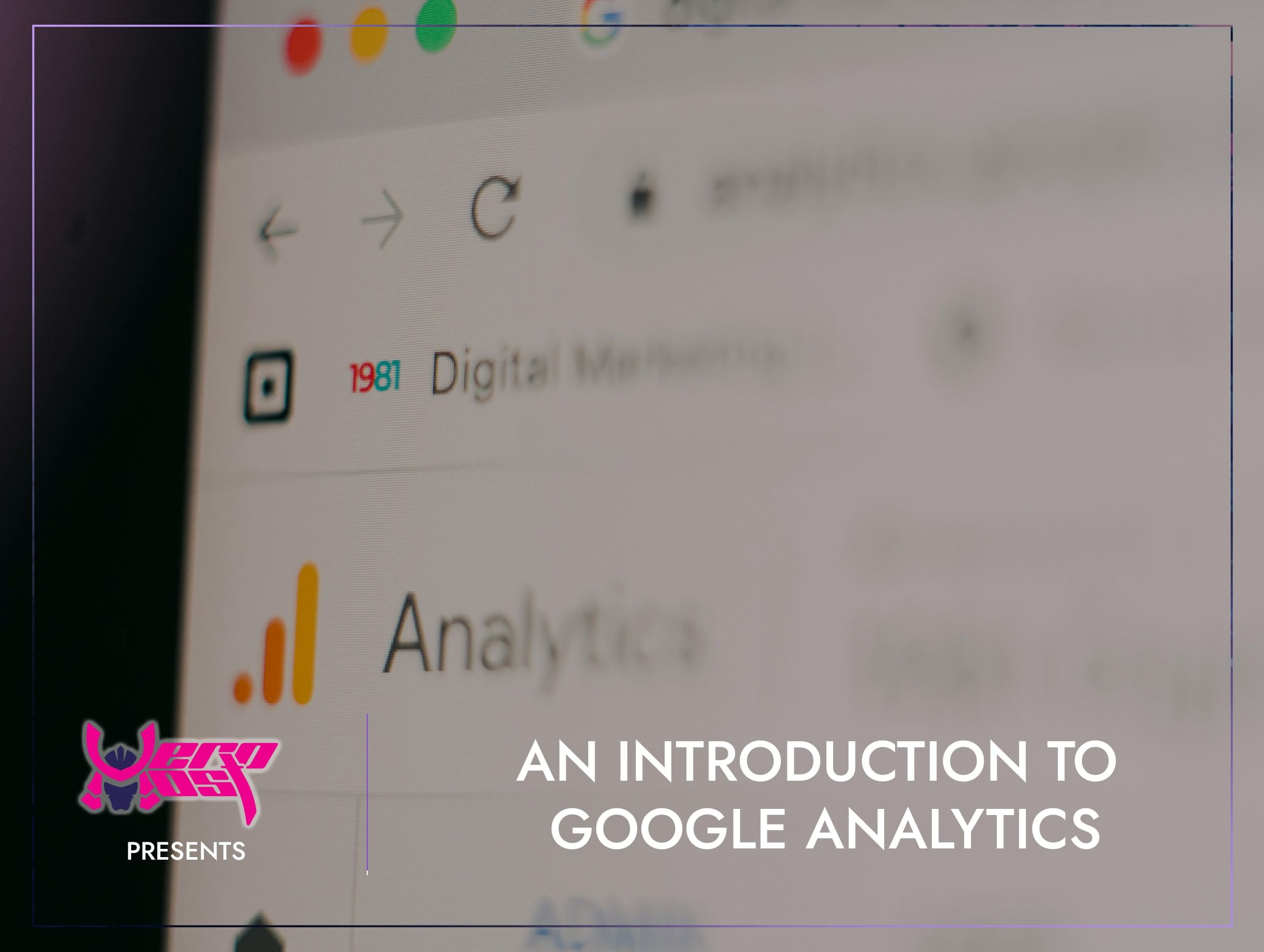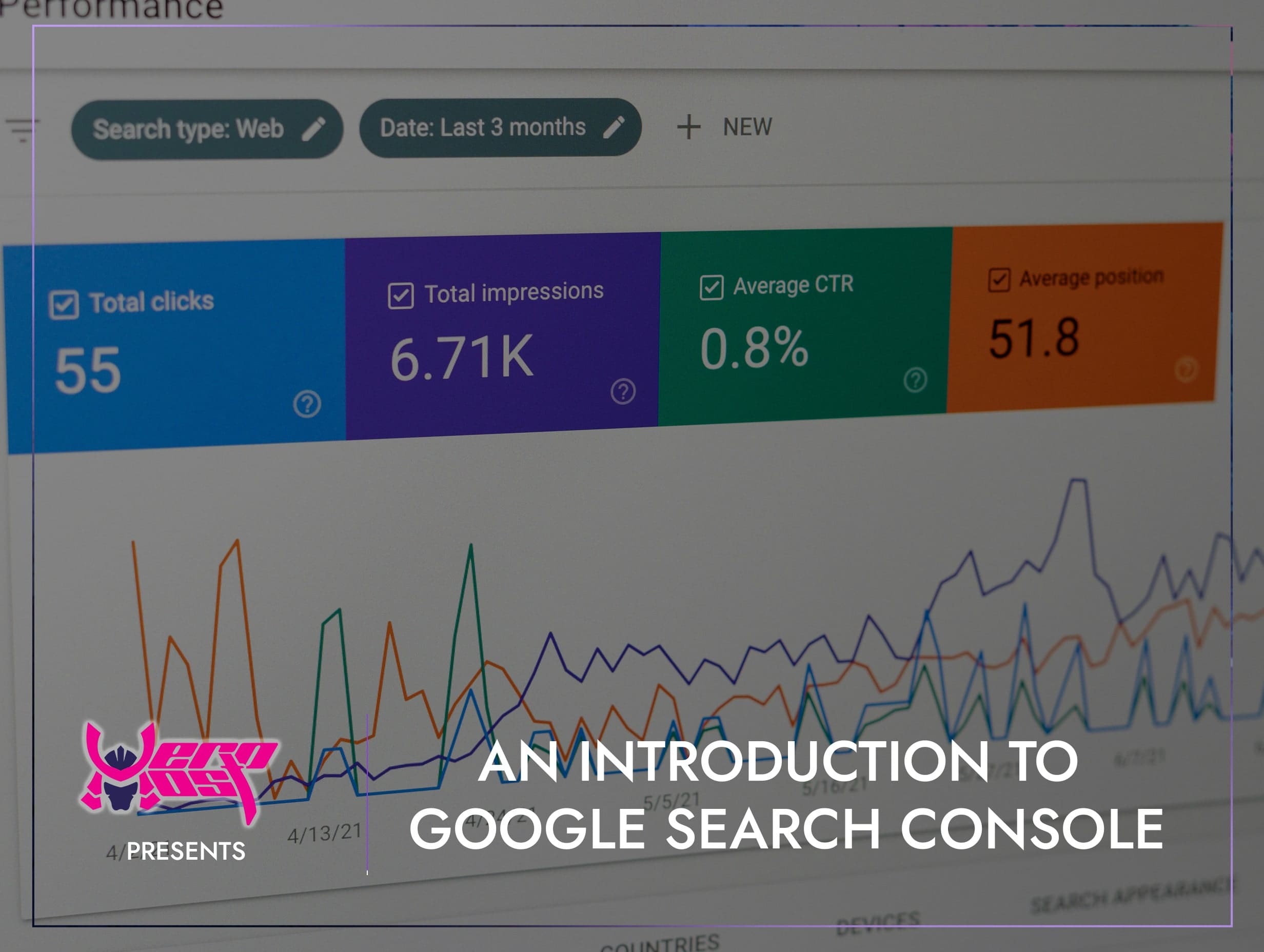An Introduction to Google Analytics
- Home
- Google Analytics & Search Console
- An Introduction to Google Analytics

- Mikey Ryu
- May 16, 2024
- 0
An Introduction to Google Analytics
In today’s digital age, the success of a website is largely driven by how well owners understand and respond to their visitors. Google Analytics (GA) offers powerful tools that provide insights into your website’s traffic, engagement, and conversions, helping you to refine your marketing strategies and improve overall site performance. This blog post will serve as an introduction to Google Analytics, exploring its key features, benefits, and how to get started.
What is Google Analytics?
Google Analytics is a web analytics service offered by Google that tracks and reports website traffic. Launched in 2005, it has become one of the most popular digital analytics software. It allows you to analyze in-depth details about the visitors on your website, providing valuable insights that can help you to shape the success strategy of your business.
Why Use Google Analytics?
The ability to understand your visitors’ behaviour, preferences, and interaction with your site can inform decisions and lead to better outcomes, such as increased user engagement or higher sales. Here are some reasons why Google Analytics is indispensable:
Understand Your Audience:
GA provides demographic details, interests, and behaviours of your website’s visitors, enabling you to cater your content more effectively to their preferences.
Track Traffic Sources:
You can see where your visitors are coming from, be it through search engines, social media platforms, direct visits, or referral sites. This helps in optimizing your marketing efforts across different channels.
Monitor User Engagement:
GA tracks how users interact with your website’s content, including what pages they visit, the duration of their visit, and what actions they take. This helps in understanding what works and what doesn’t on your site.
Measure Conversions:
You can set up goals to track specific user actions like newsletter signups, downloads, or purchases. This is crucial for measuring the effectiveness of your conversion strategies.
Key Benefits of Google Analytics
Google Analytics offers a wealth of benefits to businesses aiming to enhance their digital strategies. Here are the top five key benefits:
Enhanced User Understanding:
Google Analytics provides comprehensive data on who your visitors are, including demographics, interests, and behaviours. This detailed insight helps tailor content and marketing strategies to meet the specific needs and preferences of your audience.
Detailed Traffic Insights:
GA allows you to track where your visitors are coming from, whether through search engines, social media, direct visits, or referral links. Understanding these traffic sources helps in optimizing your efforts across various channels and boosting your return on investment.
Improved User Engagement:
By monitoring how visitors interact with your site—what pages they visit, how long they stay, and what content they engage with—you can identify which aspects of your site capture interest and which areas may need improvement.
Conversion Tracking:
Google Analytics enables you to set up specific goals to measure user actions like sign-ups, downloads, or purchases. Tracking these conversions is essential for evaluating the effectiveness of your website and marketing campaigns in driving the desired actions.
Optimised Marketing Campaigns:
With the insights gathered from Google Analytics, you can refine your marketing campaigns, enhance targeting, and allocate resources more efficiently, ensuring that each campaign is fine-tuned to the behaviours and preferences of your audience.
By leveraging these benefits, businesses can make informed decisions that not only improve the user experience but also enhance overall site performance and business outcomes.
How Is All This Information Useful?
The vast array of data provided by Google Analytics can transform how businesses approach their online presence. Understanding the utility of this information is key to leveraging it for improved decision-making and strategic planning. Here’s how the insights from Google Analytics can be practically applied:
1. Enhanced Marketing Strategies
With detailed information on where your visitors are coming from and how they are interacting with your content, you can tailor your marketing strategies to be more effective. For instance, if you notice a high amount of traffic coming from social media, you might decide to increase your social media marketing budget or refine your targeting on these platforms. Similarly, understanding which referral sources are driving quality traffic can help you foster better relationships with those partners or platforms.
2. Improved Content Development
Content is king in the digital world, and Google Analytics provides specific insights into what content performs best. By analyzing page views, average time on page, and bounce rates, you can identify which topics and types of content resonate most with your audience. This allows you to focus your content creation efforts more effectively, whether it’s by expanding on popular topics, adjusting the format of your posts, or discontinuing types of content that don’t engage your audience.
3. Optimisation of User Experience
Google Analytics helps you understand how users navigate your site and where they might encounter issues. For example, if a high number of users exit from a particular page, it might indicate a problem with content, load times, or navigation. Armed with this knowledge, you can conduct further analysis, perhaps through A/B testing, to improve the user experience and ultimately keep users on your site longer, increasing the likelihood of conversion.
4. Better ROI on Advertising Spend
The ability to track conversions and measure the success of various advertising campaigns is invaluable. Google Analytics shows you not just who clicks on your ads, but also who performs the actions you consider valuable, such as making a purchase or signing up for a newsletter. This insight allows you to adjust your ad spend to focus on the most profitable channels, ensuring that your advertising budget is used efficiently.
5. Predictive Insights and Future Planning
Beyond reacting to current data, Google Analytics can help forecast future trends based on historical data. This predictive capability can be crucial for planning your marketing activities around peak times or preparing for slower periods. Additionally, trend analysis can help identify opportunities for growth in new markets or audience segments.
In essence, the information from Google Analytics is not just about understanding who your visitors are today; it’s about anticipating who they could be tomorrow and optimizing your digital presence to meet those future needs. This proactive approach can lead to sustained growth and a significant competitive advantage in the bustling online marketplace.
Google Analytics Connections:
Google Analytics does not exist in a vacuum; its true strength lies in its ability to integrate seamlessly with a variety of other software and tools. This connectivity enhances its functionality, providing a more holistic view of digital marketing efforts and making data-driven decision-making even more powerful. Here are some key integrations and connections that enhance Google Analytics’ capabilities:
1. Google Ads
Integrating Google Analytics with Google Ads allows for a comprehensive understanding of how your paid advertising efforts are driving traffic and conversions. This connection enables you to see which ads lead to customer engagements and conversions, adjust bidding strategies based on data, and use advanced targeting options to reach highly specific audience segments.
2. Google Search Console
Linking Google Analytics with Google Search Console (GSC) provides deeper insights into how organic search traffic contributes to your website’s performance. This integration helps you understand the search queries that drive traffic to your site, monitor SEO performance, and view data about your site’s presence on Google search results.
3. Google Tag Manager
Google Tag Manager (GTM) works well with Google Analytics by simplifying the management of your tracking codes. GTM allows you to deploy and update tag configurations quickly and efficiently without needing to modify the code on your website. This is particularly useful for managing large-scale websites where frequent updates are common.
4. Content Management Systems (CMS)
Many content management systems like WordPress, Shopify, and Joomla offer plugins or built-in settings that facilitate easy integration with Google Analytics. These integrations help you track user interactions directly from your CMS, allowing for an easier analysis of how content performance impacts user behaviour and site traffic.
5. Customer Relationship Management (CRM) Systems
Integrating Google Analytics with CRM systems like Salesforce or HubSpot can enrich customer profiles with website interaction data. This connection provides a more complete view of customer journeys, from initial website visit through to conversion and beyond. It’s invaluable for tailoring marketing efforts to customer preferences and behaviors.
6. Social Media Platforms
Linking social media analytics tools with Google Analytics gives a clearer picture of how social media campaigns affect website traffic and user engagement. This integration can reveal the effectiveness of social media content and campaigns in driving traffic to your website and resulting in meaningful interactions.
7. Email Marketing Software
Integrating email platforms such as Mailchimp or Constant Contact with Google Analytics helps you track how email campaigns contribute to website traffic and conversions. You can see which emails lead to site visits, what pages are viewed, and what actions recipients take, providing valuable insights into the effectiveness of your email marketing strategies.
Conclusion
The ability to connect Google Analytics with a wide range of other tools and platforms not only amplifies its own capabilities but also enhances the overall efficiency and effectiveness of your digital marketing efforts. By leveraging these connections, businesses can achieve a more integrated approach to data analysis, allowing for more nuanced insights and more informed strategic decisions. Whether you’re looking to optimize your advertising spend, improve SEO, or create more engaging content, the integrations available with Google Analytics provide the necessary tools to achieve your goals.
Search
Categorys
- Branding (12)
- Business Growth Guides (3)
- Business Insights (3)
- Content Marketing (43)
- Domain Authority (19)
- Email Marketing (28)
- Google Analytics & Search Console (5)
- Hack or Not (2)
- Hero Host News (0)
- Inbound Marketing (32)
- Lessons From Asia (40)
- Marketing Guides (11)
- Martial Arts Journey (14)
- Outbound Marketing (8)
- Search Engine Optimisation (SEO) (41)
- Social Media Marketing (38)
- Web Design (20)
- Website Hosting (4)
- Wordpress (2)






